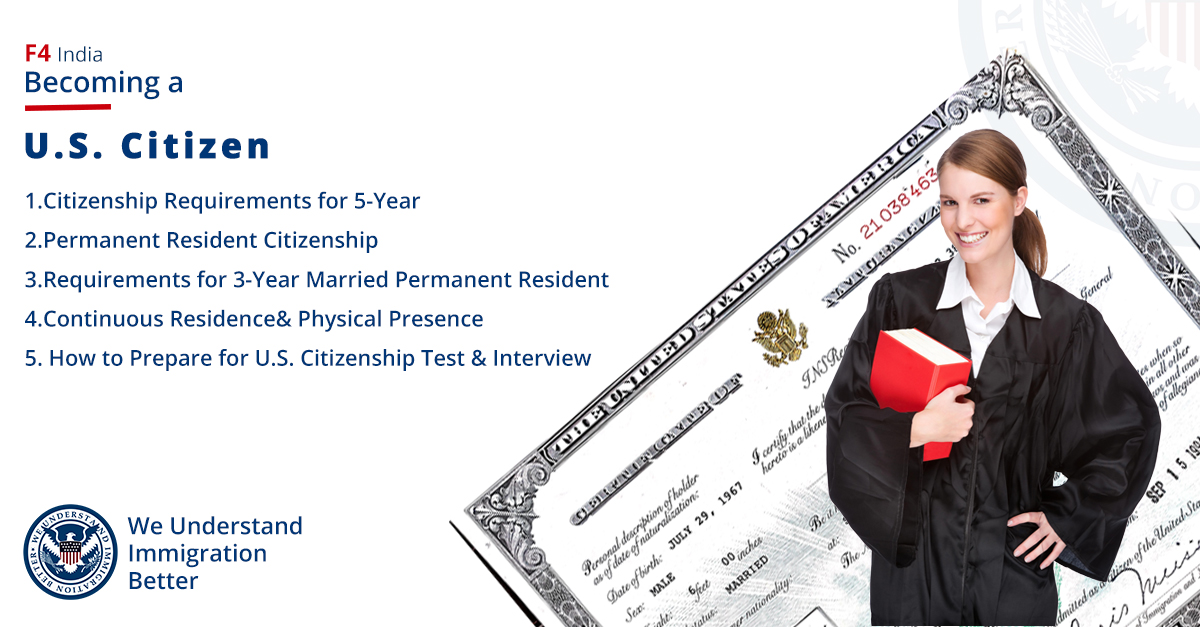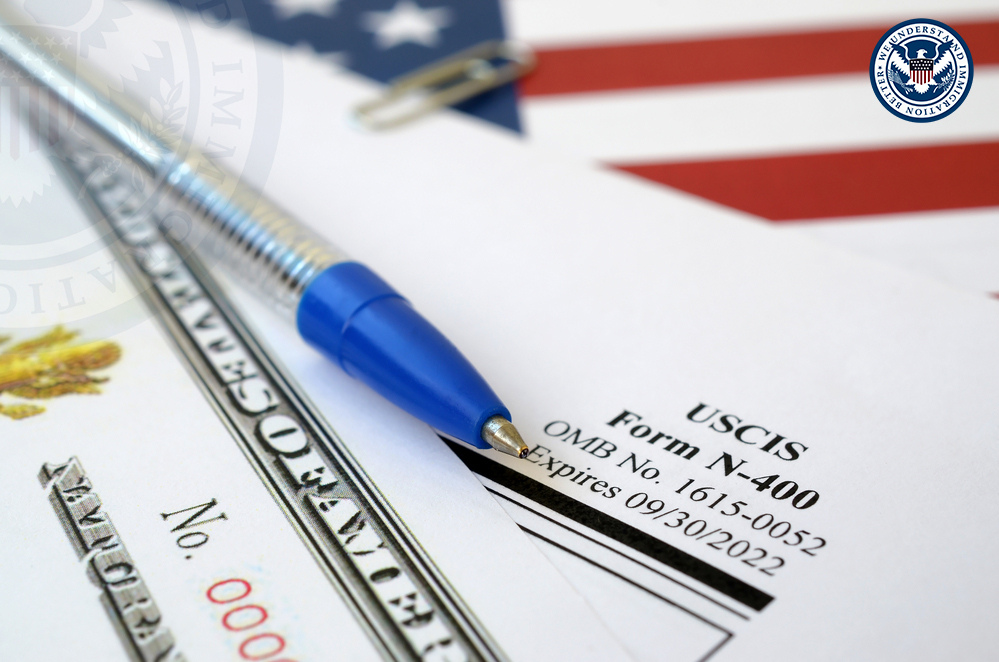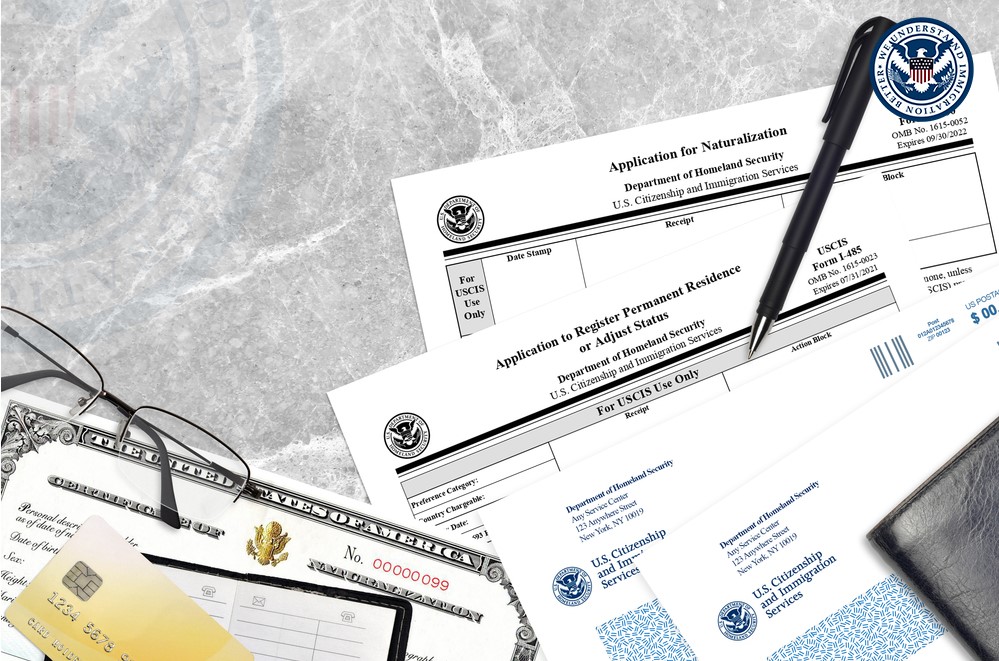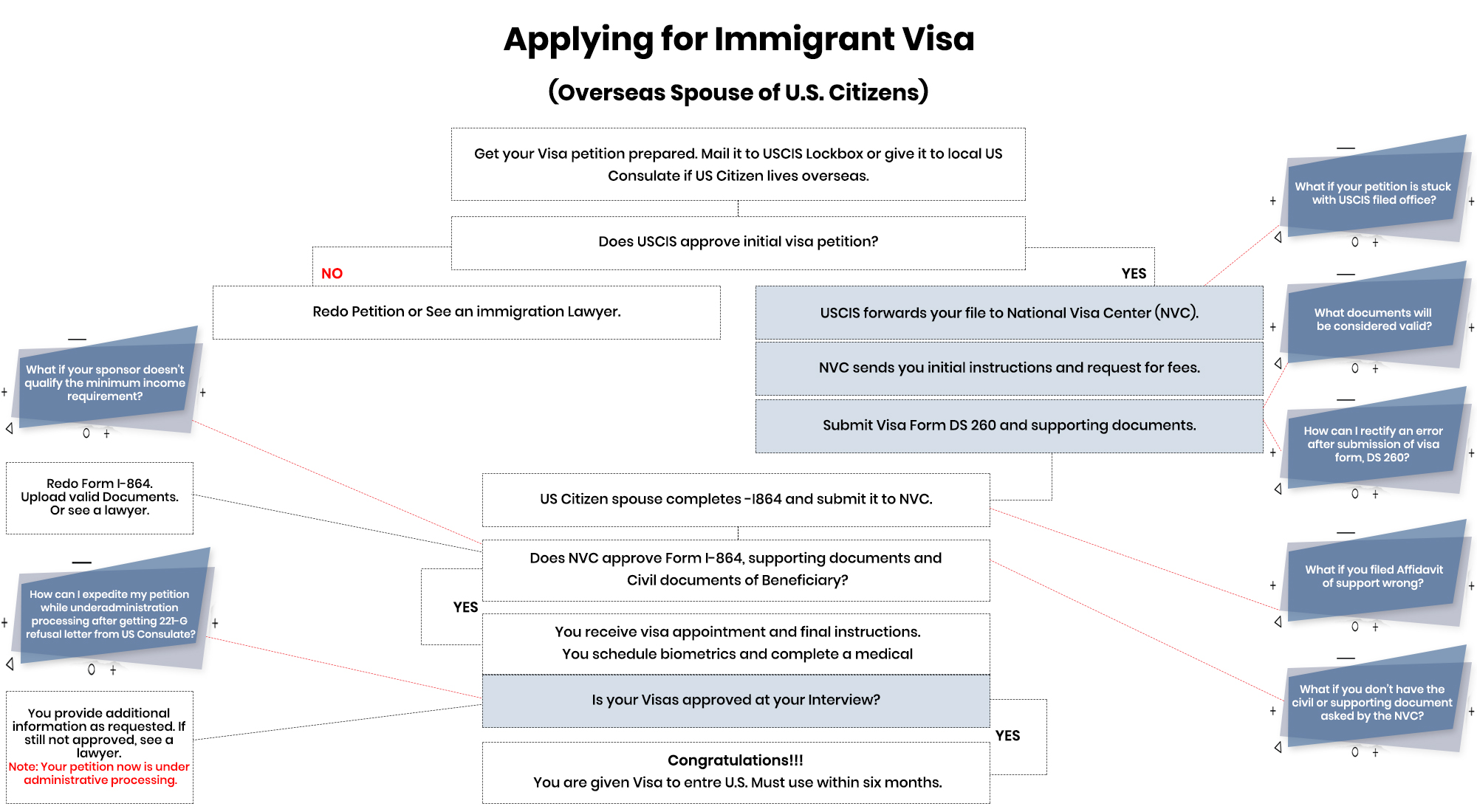Certificate of Citizenship

Certificate of Citizenship
F4 India Handling US Citizenship Cases with Confidence
F4 India help you through the process of applying for US Citizenship, as we have vast experience in this filed, we know U.S. Citizenship and Immigration Service (USCIS) procedures and rules very well. Our experienced attorneys help you determine whether you are eligible for US Citizenship. It is important to fill out right forms, prepare for the latest version of exams, present yourself well at your citizenship interview and know your new rights as a U.S. Citizen. At F4 India, our attorneys have an exclusive focus on US Citizenship cases. With all of this backing our team of attorneys, you can be assured that you are in very good hands when you work with us.
Our immigration Team members are ready to help you, no matter how challenging or difficult your case is. We want to help you achieve your immigration goals in the most efficient and effective manner possible. We are an immigration firm with a mission to provide the highest quality immigration services to our clients.
The U.S. Citizenship
Citizenship is a status in the United States that includes special rights, duties, and benefits. Citizenship of the United States is usually acquired by birth when a child is born in the United States. United States citizen has all the right to live and work in the United States and receive federal assistance.
Four Ways to become a US Citizen
Citizenship through Birth
A person can become a U.S. citizen through parents or by birth ...
Citizenship through Acquisition
A child born to a U.S.Citizen mother outside the U.S. may acquire ...
Citizenship through Derivation
There are two general ways to obtain citizenship through U.S. citizen ...
Citizenship through Naturalization
Permanent residents use Form N-400, Application for Naturalization ...
Eligibility Check
Form N-400, Application for Naturalization
- Easy, step-by-step instructions attorney
- Alerts when there's a problem
- Created by immigration
Citizenship Through Birth
Citizenship Through Acquisition
Child born outside the united states
important Application Requirements For Certificate of Citizenship
There are basically two ways that a child (under 18) can automatically become a United States citizen at birth. It is common knowledge that a child born on a United States land automatically becomes a citizen of the United States. But a child born outside of the United States may also be eligible for the United States citizenship at birth by United States citizen parent. It is known as acquisition citizenship for a child.
In some cases, a child acquires citizenship automatically even if the child was born overseas (outside the united states). One of the parents must be a United States citizen at the time of childbirth, and there are many more other conditions must be fulfilled. When this child gets married and has children, those children may also acquire U.S Citizenship at birth.
How a child can become a U.S. citizen through acquisition, we have mentioned few ways below:
To obtain official documentation from the U.S. government that a person acquired U.S. citizenship through one of the above methods, the applicant must file Form N-600, Application for Certificate of Citizenship. Check eligibility for free by starting the application on F4 India Consultants. If you are unsure or have a complicated situation, seek the assistance of an experienced immigration attorney that can guide you through this process
Citizenship Through Derivation
When parents naturalize, their children (under the age of 18 and living with the parent at the time) may get U.S. citizenship automatically, with a condition that they are also permanent residents. Children who get their U.S. citizenship through derivation do not need to participate in a naturalization ceremony. Generally, foreign-born children under 18 automatically acquire U.S. citizenship if three requirements are met:
The US Citizenship laws on the automatic naturalization of children have varied over the years. Whether to know if the law applies to you is dependent on the law that existed when your parent’s naturalization took place. Check eligibility for free by starting the application citizenship service tools option. If you have a complex situation or are unsure, hire our experienced immigration attorney that can guide you through this process.
Citizenship Through Naturalization
The final step in the immigration process for a lawful permanent resident is to obtain United States citizenship through the naturalization process. Depending on the applicant's background, this may be confusing or complicated. Travel history, criminal backgrounds, civics tests, language requirements and other issues that could potentially overcome applicants' attainment of United States citizenship.Application for Naturalization (Form N-400): Naturalization is the process of obtaining United States citizenship for legal permanent residents (green cardholders).

The process can be quite complicated due to the rules and requirements and the documentation and information needed to get citizenship.
Naturalization is a method to willingly become a U.S. citizen if in case someone is born outside of the U.S., In general, you'll be eligible if you can show continuous U.S. residence for 3 to 5 years, are a minimum of eighteen years old, and demonstrate good ethical character and loyalty to the U.S. Constitution. You need to additionally take the English and civics test unless you qualify for an English language exemption or a medical disability exception.
Benefits of Naturalization
The Constitution and laws of the United States give many rights to both citizens and non-citizens living in the United States. However, some rights are only for U.S. citizens. Naturalization, the process of becoming a U.S. citizen, offers several benefits. They include:
Who is Qualified?
You need to meet the subsequent general eligibility requirements to apply for naturalization and become a U.S. citizen:
How to Apply?
You should be very vigilant while filing Form N-400 Application for Naturalization. You need to treat it as a very essential opening of your final destination that will set the place for everything else you may wish to do as a U.S. Citizen. Therefore, it is not advisable to do it yourself, but if you insist on DIY (Do it Yourself) for your Form N-400, Here are my three pro steps.
We at F4 India provides all the online and offline services for filling Form N-400 application with all the necessary evidence and supporting documents. It is very cost-effective as well and we file all the immigration applications under the supervision of expert immigration attorneys.
We at F4 India provides all the online and offline services for filling Form N-400 application with all the necessary evidence and supporting documents. It is very cost-effective as well and we file all the immigration applications under the supervision of expert immigration attorneys.
What Happen Once You Apply
Once USCIS receives your form N-400, you will receive:
At the Time of Interview:

Your application will be reviewed by an Immigration Services Officer and some questions will be asked in regard to your Form N-400 Application.If someone is requesting a medical exception to the English and civics testing requirements, submit form N-648, Medical Certification for Disability Exceptions if he/she did not submit it at the time then they need to file their form N-400 or before their interview they will take the English and civics tests,
if not exempt. USCIS can provide you with a notice of interview results following your interview. Note: you'll be able to take a practice civics test online to test your knowledge of U.S. history and government.
If Your Application Is Denied:
If USCIS denies Someone’s application for naturalization, then they will receive a written notice telling why. The denial letter will have all the explanation about how to ask for a hearing if one feel that USCIS was wrong to deny their citizenship.
The Request for Hearing on a choice in Naturalization Proceedings under Section 336 of the INA (N-336) can be filed by paper or through an online account
Forms and Fees
Procedure And Time Line - N 400
After Filing N 400 Form
Apply for Citizenship
These steps are for permanent residents considering the naturalization process. It answers many of the common questions and offers numerous resources to help make naturalization as a U.S. citizen a reality.
If you are interested in other naturalization-related tips and how-to do it information, please read the content below:
Why This Is a Good Time To Apply For Citizenship
There’s never been a better time to become a U.S. citizen. It’s less expensive than remaining a permanent resident, and U.S. citizens get priority over permanent residents when it comes to getting a green card for a relative. You’ll also have the opportunity to vote in upcoming elections. Consider this:
Just 20 years ago, it only cost $75 to renew a green card. The fee has already risen to $540. That’s almost five times the cost! Every 10 years a permanent resident will pay $540 to renew a green card. Don’t forget, if your green card is lost, stolen or damaged, it will cost another $540 to replace it. What’s more, USCIS fees keep rising. On the other hand, the one-time USCIS fee for the naturalization application is $725. Sure, this is a bit more expensive in the short term, but U.S. citizenship is good for a lifetime. Over the course of many years, it is significantly less expensive. After all, you won’t ever have to pay another USCIS fee again! The difference is staggering. Use our Citizenship Cost Calculator to see your cost comparison.
In the long term, USCIS filing fees for naturalization are far less expensive than maintaining permanent resident status. It’s more cost-effective to become a U.S. citizen.
If you travel abroad or want to help other family members obtain a green card, U.S. citizens get the VIP service. There’s no comparison. Those who want to travel outside the United States or petition more family members to immigrate to the U.S. will get priority over permanent residents. The immigrant visas for immediate relatives of US Citizens like parents, spouse, unmarried can be obtained much faster than the immigrant visa options available for relatives of Permanent residents and this is one of the privileges of being a US Citizen.
On the other hand, family preference immigrant visas are for relatives of lawful permanent residents. Unfortunately, there are a limited number of visas issued for each category. The Family preference category has very long wait times that span several years. What’s more, a child born abroad to a U.S. citizen parent or parents may acquire U.S. citizenship at birth.
There are lot many benefits of obtaining a United States Passport. A United States Passport holder can travel most of the countries around the world without any hassle. Specific countries that work with the U.S on the Visa Waiver Program will permit entry to United States Passport holders for a specific time, so you won’t need to apply a visa to travel there. A United States Passport also allows a United States Citizen to get assistance from the American government when traveling overseas.
When you become a U.S. Citizen, there are more job opportunities. In fact, jobs with government agencies require U.S. Citizenship. Some naturalized citizens want to take a more active role in U.S. Govt. In many cases, only U.S. citizens are eligible for the financial grants made by the government, including college scholarships. And of course, becoming a U.S. citizen is a way to demonstrate patriotism for your new country
Eligibility for Naturalization
Eligibility for Naturalization If you’re a lawful permanent resident (green card holder), you may be eligible to become a U.S. citizen through a process called naturalization. An individual has to fulfil several requirements before applying for citizenship.
If you’re a lawful permanent resident (green card holder), you may be eligible to become a U.S. citizen through a process called naturalization. Naturalization is the best way to become a U.S. citizen those who are foreign born people.
The majority of naturalization applicants are eligible on the basis of 5 years with permanent resident status, but there are exceptions. The most common exceptions are for permanent residents who have been married to a U.S. citizen for 3 years and permanent residents with U.S. citizen spouses working abroad
If you are applying on the basis of 5 years with permanent resident status, you must meet the following requirements to be eligible for naturalization
You must have your permanent resident status for at least 5 years before you are eligible to naturalize. Time as a permanent resident started the day you were granted permanent resident status. The Date can be easily found on your green card next to Resident Since.
You must have lived within the same state (or USCIS district with jurisdiction over the applicant’s place of residence) for at least 3 months prior to the date of filing your application.
Continuous residence means that the applicant has maintained residence within the United States for the last five years. It’s okay if you’ve travelled abroad for a short trip or moved to another state. The continuous residence requirement helps you demonstrate that you have begun to integrate with American community and have made the U.S. a permanent home.
Have you lived abroad more than six months or longer? If yes, then you must have disrupted your continuous residency. Please contact F4 India office before you start filing.
If you are working in certain types of overseas employment — like as working for the United States government or United States armed forces — you are eligible for an exception to the continuous residency in U.S
Physical presence refers to the period of time the applicant must be physically present in the United States during the five years prior to filing the application. Like continuous physical presence requirement helps you demonstrate that you have begun to integrate with American community and intend to stay in the U.S. Therefore, you must be physically present in the United States for at least thirty months out of the five years immediately preceding the date of filing your application.
You must be able to read, write, and speak English and have knowledge and an understanding of U.S. history and government (also known as civics). USCIS provides study materials for both tests.
USCIS does provide some English language exceptions and medical disability exceptions to English and civics portions of the naturalization requirements for those who qualify. USCIS also provides accommodations for individuals with disabilities.
Everybody makes mistakes; you aren’t expected to be perfect. The United States Govt wants new citizens to be of good moral character, attached to the principles of the Constitution of the United States, and well-disposed to the good order and happiness of the United States. Generally, minor crimes will not prevent someone from naturalizing. Traffic tickets do not need to be reported. If you have a criminal record, speak to an immigration attorney before applying for naturalization.
If you’re not eligible to become a U.S. citizen as a five-year permanent resident, you may be eligible in one of several other categories. The most common two are for a 3-Year Permanent Resident Married to a U.S. Citizen and Permanent Resident with a U.S. Citizen Spouse Working Abroad:
Three Year Permanent Resident Married to a U.S. Citizen
If you have been a permanent resident for 3 three years, and you have been married to a U.S. citizen for at least three years, you may also be eligible for naturalization. Your spouse must have been a U.S. citizen for the last 3 years and at the time of filing the application.
Additionally, the physical presence requirement is reduced for this eligibility category. You must only be physically present in the U.S. for 18 months out of the 3 years before you file the application.
United States citizen’s Spouses that have already been permanent residents for five years will generally apply under the general five-year provision. There is less documentation required, and most people find it an easier way than applying as a three year permanent resident married to a U.S Citizen.
Permanent Resident with a U.S. Citizen Spouse Working Abroad
If you are a permanent resident, and you are the spouse of a U.S. citizen that is regularly engaged in qualifying employment abroad, you may also be eligible for naturalization.
Spouses who are entitled under this facility are exempt from the continuous residence and physical existence requirement for naturalization. That means that the applicant must only be a permanent resident at the time of filing the naturalization application and time spent outside the U.S. will not affect eligibility. Qualifying service abroad means to be under employment agreement and to accept the duties of employment in any of following entities or positions
How To Apply For Naturalization
Permanent residents that want to apply for U.S. citizenship through naturalization must file Form N-400, Application for Naturalization.
For people that want the reassurance that they’re applying correctly, F4 India provides filling service that gives a guarantee that USCIS will accept the application.
PREPARING FOR THE INTERVIEW
USCIS will mail you a letter with the date, time and location of your naturalization interview.
Items to Take to the Naturalization Interview. The USCIS letter will list the items that you must take to your naturalization interview. Generally, the mandatory items include:
It can also be very helpful to take documentation that helps support your application. These items may include:
Proof of marital status (if you have ever been married) such as a marriage certificate, divorce decree, or death certificate of former spouse
Since you would have filed Form N-400 several months prior to the interview, it is very possible that information has changed. You may have made an additional trip abroad, have a new job, or even gotten married. If there are any differences between answers you provided on your application and the supporting documents you submitted than, be prepared to explain the reason.
You must always be honest about your answers. Lying to a USCIS officer will likely make you ineligible for naturalization. If you feel the new information could be harmful to the naturalization process, speak with an immigration attorney before attending the naturalization interview.
Your ability to understand the questions and answers in English is part of the interview.
Keep a copy of the Form N-400 that you filed. Review this in detail before your interview. Make sure you understand each and every question.
Preparing for the Test
During your naturalization interview, the USCIS officer will also test your ability to read, write, and speak English (unless you are exempt from the English requirements). Civics tests will also be given to you in the English language to check your knowledge and understanding of U.S. history and government unless you are exempt. Even if you are exempted from the English test, you have to take the civics test in the language of your choice or qualify for a waiver.
English Test Your English skills will be tested in the following ways:
| Reading | This Test is to find out your ability to read in English, out of 3 sentences you have to read one sentence. |
| Writing | This test to check your ability to write in English, out of three sentences you must write one sentence |
| Speaking | Speaking test is also to check the ability to speak English is determined by your answers to questions normally asked by USCIS officers during the naturalization eligibility interview on Form N-400. |
You will only be expected to write, read and understand simple vocabulary and use basic grammar. You may ask for words to be repeated or rephrased and may make some errors in pronunciation, spelling, and grammar and still meet the English requirement for naturalization
History and Civics Test
The U.S. History and Civics Test have 10 questions. The questions will be asked orally, and you will be required to answer orally. It’s only necessary to get 6 questions correct to pass. Once you have answered 6 correctly, the test is complete.
The great news is that you can study these questions before the test. USCIS makes a list of 100 questions available for you to study. Again, you will only be asked to answer 10 questions.
USCIS officers will give careful consideration for an applicant’s age, background, level of education, length of residence in the U.S., opportunities available and efforts made to acquire the requisite knowledge, and other factors that may affect the applicant’s knowledge and understanding of the questions.
At the end of the interview, the USCIS officer will inform you if you have passed the history and civics test.
Exemptions For The Test
An applicant may get an exception from the civics requirement, English requirement, or both. The table shows below serves as a quick understanding of the exceptions to the civics and English requirements for naturalization.
Why You Need An Immigration Attorney?
To avoid running into unnecessary trouble, it is a good idea to hire an immigration attorney. Keep in mind that, each year, USCIS rejects or denies thousands of applications.
An attorney will do the following tasks in order to make your case stronger for approval.
Just Remember that “a good attorney can be the difference between an approval and a denial and its always better to get it right the first time.”

